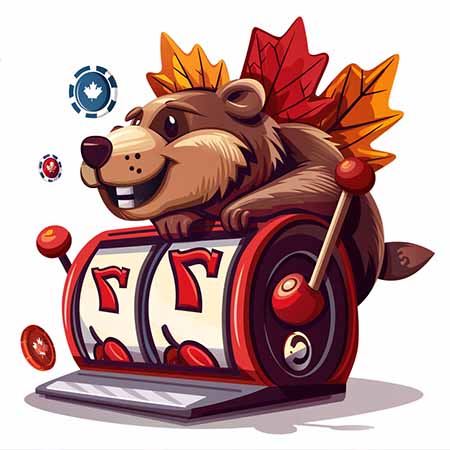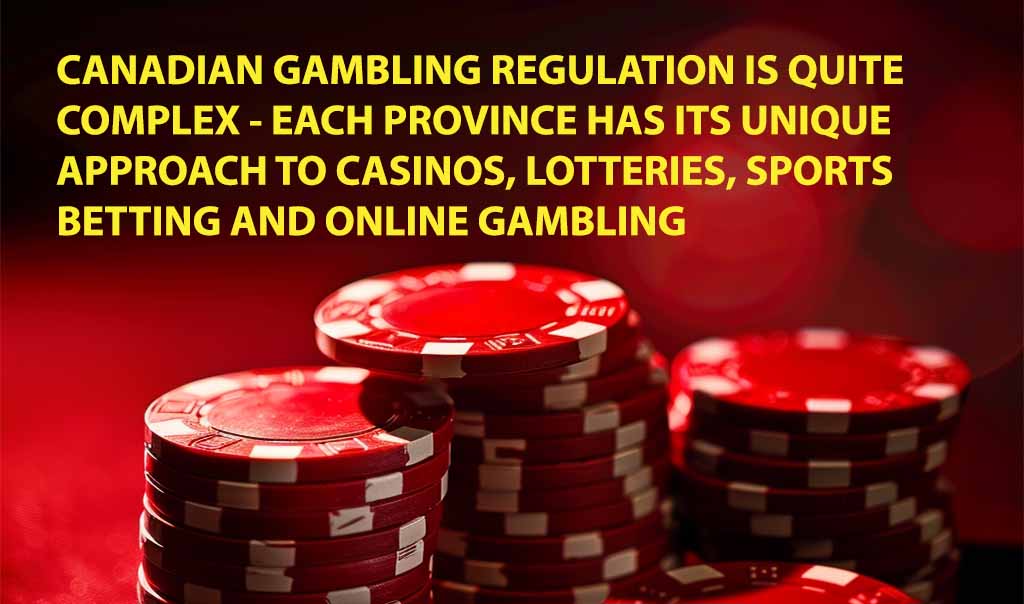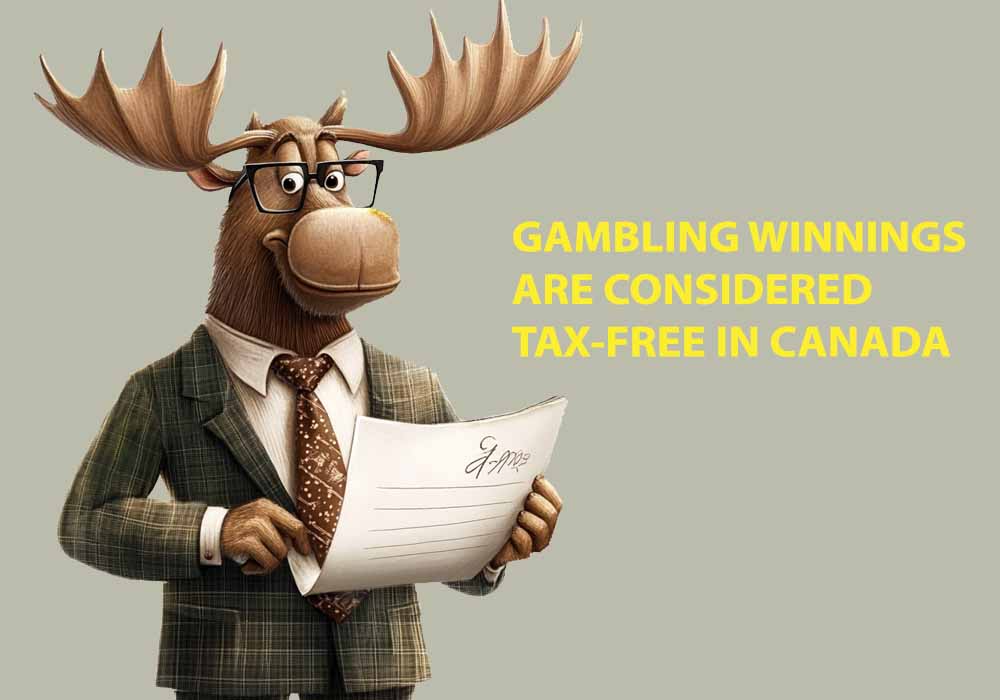Gambling regulations in Canada present a unique and intricate framework shaped by both federal and provincial jurisdictions. For instance, while the Criminal Code lays down a blanket ban, it carves out exceptions for provinces to “conduct and manage” gambling activities. Therefore, each province has its unique approach to casinos, lotteries, sports betting, and online gambling. The diversity makes the Canadian gambling environment quite complex. This article provides the most relevant information on regulations such as the Ontario law, the legal age to gamble, online gambling status, and much more.
A Highlight of Gambling Laws in Canada

- All gambling operators, whether land-based or online, must be licensed by the appropriate provincial regulatory bodies.
- Gambling revenue typically funds public services such as healthcare, education, and infrastructure projects.
- Some provinces, like British Columbia and Quebec, operate their online gambling platforms.
- Others, like Ontario, have opened the market to private operators under strict regulatory frameworks.
- Gambling winnings are generally tax-free for casual players, while professional gamblers must report their earnings as business income.
- Provinces have strict rules regarding gambling advertising to ensure that it is not misleading and does not target minors or vulnerable populations.
- Offshore online gambling sites often operate in a legal grey area, attracting Canadian players without specific prohibitions.
Canadian Gambling Laws and Regulations
The Criminal Code of Canada regulates gambling in Canada, but each province and territory has the authority to enact its laws and regulations regarding gambling activities.
This right is granted to create a decentralized approach where each authority decides on regulations such as the legal age, the location of casinos, and licensing gambling activities.
As mentioned above, the various forms of gambling and games that are allowed in Canada include:
- Land-based casinos that offer games such as table games, slot machines, and poker;
- Horse racing betting;
- Charitable gaming such as bingo and raffles;
- Online gambling.
These activities are regulated and only deemed legal by autonomous provincial and territorial authorities. This has created many regulations and gambling laws in Canada that are unique to each area.
Federal Legislation: The Criminal Code of Canada
The key provisions of the Criminal Code of Canada include;
Section 206
This section makes it illegal to participate in unauthorized gambling activities, including betting, bookmaking, and operating illegal gaming houses. This offense can be prosecuted as either an indictable offense (maximum penalty of 2 years imprisonment) or a summary conviction offense (maximum penalty of imprisonment for a term less than two years and/or a fine).
Making, printing, advertising, or publishing any proposal, scheme, or plan for disposing of property by lot, cards, tickets, or any other chance-based method is prohibited. In addition, selling or giving away property by lottery, cards, tickets, or chance is unlawful.
It is essential to note that certain charitable fundraising activities, like raffles and bingo lotteries, conducted and managed by a province are exempt.
Overall, Section 206 helps regulate gambling activities in Canada by prohibiting unauthorized lotteries and chance-based schemes. It ensures that gambling is conducted only through government-sanctioned channels or under specific exemptions.
Section 207
This pivotal section permits provincial governments to conduct and manage lottery schemes. Section 207(1)(b) allows charitable and religious organizations to run lottery schemes under a license issued by a provincial authority. This section also permits games of chance authorized by a board of a fair or exhibition or by an operator of a concession leased by that board.
In addition, this segment permits pari-mutuel betting systems, typically used in horse racing, under specific regulations. It also allows for creating and distributing materials related to lawful gambling activities, as long as they are intended for use in places where such gambling is legal.
Typically, Section 207 creates a framework where provinces and some other entities can operate specific forms of gambling, provided they follow the outlined regulations. This section and the general prohibitions in Part VII create the foundation for gambling law Canada.
Gambling Regulations in Canada: Provincial Regulations
As mentioned before, each province in Canada has its regulatory body that oversees gambling activities. Here’s a quick overview of how some key provinces regulate gambling activities.
- Alberta. Commercial casinos, provincially-run online lottery platforms, and single-event sports betting are legal in Alberta. The Alberta Gaming, Liquor, and Cannabis Commission (AGLC) oversees all gambling activities. It also offers online gambling through PlayAlberta.ca.
- British Columbia. B.C. has a well-established gambling market with provincial oversight. Here, government-run casinos and provincially controlled online gambling platforms are legal. The British Columbia Lottery Corporation (BCLC) manages the gambling activities.
- Ontario. Ontario boasts the most open gambling market in Canada. In 2022, they launched a regulated online gambling market, allowing private operators to offer online casino games and sports betting. The regulatory body there is the Alcohol and Gaming Commission of Ontario (AGCO).
- Quebec. Quebec leans towards stricter regulations and focuses on government-controlled gambling. It operates casinos, lotteries, and online gambling via Espacejeux. Loto-Québec, the regulatory body, also manages video lottery terminals and bingo operations.
- Nova Scotia. Nova Scotia has a more restricted gambling market. The legal forms of gambling are Government-run casinos, provincially controlled online lottery schemes, and single-event sports betting. Nova Scotia Gaming Corporation (NSGC) oversees all gambling activities.
- Manitoba. The Liquor, Gaming, and Cannabis Authority of Manitoba (LGCA) regulates gambling activities. The LGCA licenses and regulates commercial casinos with table games and slot machines. It also oversees charitable organizations seeking to conduct fundraising activities like raffles and bingo by issuing licenses and ensuring adherence to regulations.
- Atlantic Provinces. The Atlantic Lottery Corporation (ALC), also known as Atlantic Lottery or Loto Atlantique, provides government-regulated lottery products in the four provinces of Atlantic Canada: New Brunswick, Newfoundland and Labrador, Nova Scotia, and Prince Edward Island.
 Other gambling regulations in Canada include;
Other gambling regulations in Canada include;
- All gambling operators, whether land-based or online, must be licensed by the appropriate provincial regulatory bodies. This includes casinos, sports betting operations, and charitable gaming events.
- Provincial regulations emphasize responsible gambling. Initiatives include self-exclusion programs, public awareness campaigns, and support services for problem gamblers.
- Gambling revenue typically funds public services such as healthcare, education, and infrastructure projects. This ensures that the economic benefits of gambling are reinvested into the community.
- Provinces have strict rules regarding gambling advertising to ensure that it is not misleading and does not target minors or vulnerable populations. Advertising must promote responsible gambling and provide information on how to access help for gambling problems.
Online Gambling Law in Canada – The Present and The Future
Online gambling regulations in Canada are particularly complex due to the lack of explicit federal laws addressing it. Provinces have taken varied approaches. For instance, Some provinces, such as Quebec and British Columbia, have embraced online gambling and operate their own local platforms, such as Loto Quebec and PlayNow.com. On the other hand, many offshore online gambling sites operate in a legal grey area, accepting Canadian players without explicit prohibition or regulation from Canadian authorities.
Other online gambling laws include:
Ontario Online Gambling Regulation – Leading the Pack in Innovative Legislation
Another province that has fully embraced iGaming is Ontario, a major financial hub and the site of the Bank of Canada. It launched the iGaming Ontario (iGO), a Canadian government initiative established in July 2021. It is a subsidiary of the Alcohol and Gaming Commission of Ontario (AGCO), created to oversee the newly launched regulated iGaming market.
iGO’s primary mission is to establish a safe and competitive online gambling market in Ontario. This involves creating a framework for licensing and regulating private operators offering casino games, sports betting, and other online gambling products. As a result, there is a legal and regulated online gambling market in Ontario.
A key focus for iGO is ensuring consumer protection for players in the online gambling market. This includes implementing measures like:
- Age verification to prevent underage gambling;
- Responsible gambling tools and resources for players;
- Fair play and security standards for online gambling platforms.
According to igaming, the initiative has registered 47 iGaming operators, provide ing access to 77 regulated sites for local players. It boasts the most competitive online gambling market in North America, with more operators than any other province or state. Additionally, revenue generated from the regulated iGaming market funds various public services in Ontario, including healthcare, education, and infrastructure projects.
The iGaming Ontario (iGO) initiative represents a significant step forward in regulating online gambling in Canada. By creating a safe, competitive, and well-regulated market, iGO ensures that Ontario residents can enjoy online gambling while being protected by robust regulatory measures.
Kahnawake Gaming Commission – An Adaptive and Forward-Thinking Online Gaming Hub
The Kahnawake Gaming Commission (KGC) is a regulatory body established by the Mohawk Council of Kahnawà:ke, the government of the Kahnawake Mohawk Territory in Quebec, Canada. Due to the Mohawks’ claim to self-government, the commission operates outside the Canadian federal and provincial gambling regulations.
 Established in 1996, KGC is one of the first regulatory bodies to appreciate the potential of using the Internet for gambling. It licenses and regulates online casinos, sportsbooks, and land-based activities, including; poker rooms, raffles, and electronic gaming devices within the territory. It also ensures that licensees take appropriate steps to protect players’ personal and financial information, creating a safe gaming environment. The Commission is one of the world’s oldest and most respected online gaming regulators.
Established in 1996, KGC is one of the first regulatory bodies to appreciate the potential of using the Internet for gambling. It licenses and regulates online casinos, sportsbooks, and land-based activities, including; poker rooms, raffles, and electronic gaming devices within the territory. It also ensures that licensees take appropriate steps to protect players’ personal and financial information, creating a safe gaming environment. The Commission is one of the world’s oldest and most respected online gaming regulators.
KGC operates under the Kahnawake Gaming Law. It has an excellent reputation for maintaining high ethical standards, ensuring provider compliance, and conducting full background checks for license seekers.
The Kahnawake Mohawk Territory is truly ahead of the game because it provides state-of-the-art data centers that provide secure and reliable hosting for numerous online gambling websites. Their focus on reputable technological infrastructure has made the territory an appealing hosting jurisdiction.
The Kahnawake Gaming Commission is vital in regulating and overseeing gaming activities. By issuing licenses, ensuring compliance, and promoting responsible gambling, the KGC provides players with a safe and fair gaming environment. Its influence extends beyond Canada, making it a key player in the global online gaming industry.
Revenue from these initiatives has had positive economic outcomes and contributed to the community’s well-being. It has opened up new employment opportunities and stimulated economic growth. Furthermore, gambling has played a key role in promoting and preserving the culture and traditions of the Kahwanake Tribe, and this is further reinforced as proceeds from gambling revenues are invested in education, social programs, and cultural initiatives.
Even if these territories and provinces have independent decision-making, they must adhere to the overarching Canadian laws such as the umbrella standards for anti-money laundering and financial transactions.
These include the existing Alcohol and Gaming Commission of Ontario laws and federal standards like the Proceeds of Crime (Money Laundering) and Terrorist Financing Act. (PCMLTFA) and Financial Transactions and Reports Analysis Centre of Canada (FINTRAC).
Let’s take a quick look at these regulations.
- Financial Transactions and Reports Analysis Centre of Canada (FINTRAC). This financial intelligence unit of Canada aims to detect, prevent, and deter cases of money laundering and anti-terrorist financing.
- Proceeds of Crime (Money Laundering) and Terrorist Financing Act. (PCMLTFA). This Act covers illegal activities such as suspicious financial activities, money laundering, and financing of terrorist activities. This blanket law works to detect and deter actions using measures such as:
- Ensuring the reporting of suspicious cross-border movement of digital assets and financial assets.
- Ensure that businesses susceptible to money laundering and terrorist financing establish proper client identification practices and keep up-to-date records.
- Establishing an agency that is responsible for overseeing the reported information.
- Providing law enforcement with the required information to investigate and prosecute suspected crimes.
- Placing safeguards in place to protect customers’ personal information.
These gambling regulations in Canada are always evolving, so you must constantly check the amendments and updates to keep up with technological advancements.
The PCMLTFA is regulated by the Financial Transactions and Reports Analysis Centre of Canada (FINTRAC) mentioned above. If entities are found to be prohibited by the regulations, they could be fined up to 2 million or imprisoned for five years.
Their responsibilities include:
- Protecting and securing personal information;
- Providing necessary information regarding terrorist financing activities on money laundering;
- Protect personal information;
- Collecting financial information and transaction reports that are in line with PCMLTFA regulations;
- Investigation of reports of money laundering and terrorist financing activities that endanger the security of Canada;
- Ensuring compliance with PCMLTFA regulations;
- Educating the public about terrorist financing and money laundering activities.
More gambling opportunities are open to gamers from offshore online casinos. This has only added to this confusing legal environment. The federal government has not explicitly banned online gambling on international gaming sites. Thus, we advise you to check which laws apply to your province or territory for updated information.
Now that we have looked at online gambling laws in Canada, let’s answer some frequently asked questions.
Is Online Gambling Legal in Canada?
Yes, online gambling is legal. However, it is regulated, and laws vary by province.
As we have seen above, provinces like Ontario have a fully legal online gambling market for private operators offering casino games and sports betting. Other provinces like British Columbia, Quebec, Alberta, and Manitoba have established online gambling platforms and regulatory bodies to oversee these activities.
On the other hand, The KGC, located in the Mohawk Territory of Kahnawake, issues licenses to online gaming operators. These operators often serve international markets, including Canadian players.
While federal law provides a broad legal structure, provincial governments have the authority to regulate and manage online gambling, leading to a diverse and evolving landscape. Therefore, always check with your province’s gambling authority for the latest information on online gambling regulations in Canada. Their website will let you know what’s legal and how to gamble safely on licensed platforms. There are also safe Bitcoin casinos in Canada you can gamble in
Are Canadian Online Casinos Legit?
Some Canadian online casinos are legit and trustworthy, particularly those regulated by provincial authorities or recognized regulatory bodies such as the KGC.
Signs of a Legit Casino Include:
- The casino displays its license information, including the issuing regulatory body (e.g., AGCO for Ontario) and license number;
- The casino uses secure protocols (like HTTPS) to encrypt your financial information and personal data;
- Games offered by regulated casinos are regularly audited for fairness by independent testing agencies;
- Availability of responsible gambling tools, such as self-exclusion programs;
- Good online reviews or feedback from players;
- Using provincially regulated online casinos provides the highest level of assurance regarding fairness, security, and responsible gambling practices.
Tax Laws in Canada

In Canada, gambling winnings from casual betting activities such as lotteries, casino games, horse racing, and sports betting are not considered taxable income. This means that any prizes or jackpots won from these activities are generally tax-free.
On the other hand, If an individual is deemed to be a professional gambler, their gambling activities are considered a business. As a result, the net income from these activities is taxable under Canadian tax law.
The distinction between casual and professional gambling is crucial in determining tax liability. Please note that tax laws can be complex and may change over time, so staying informed and considering professional advice is essential. This will help you adhere to Canada’s gambling regulations.
What is the Legal Age for Canada Casino?
The legal age to gamble at casinos in Canada is either 18 or 19, depending on the province or territory. In most provinces across Canada, the legal age to gamble at casinos is 19 years old. This includes British Columbia, Ontario, Saskatchewan, Nova Scotia, and New Brunswick. To gamble in Alberta, Manitoba, and Quebec, you must be 18 years old. It’s always best to double-check the specific regulations in your province before heading to a casino.
In Closing
Canada offers a favourable environment for gamblers with its lenient tax laws and well-regulated gambling industry. Provinces have the primary authority to regulate gambling activities within their borders. The gambling regulations in Canada vary widely, with some provinces like Ontario offering a legal online gambling market with private operators, while others restrict online options or completely prohibit them. In addition, provincial regulations cover aspects like the legal gambling age, types of gambling allowed, and responsible gambling practices. The Kahnawake Gaming Commission also plays a significant role, particularly in the online gambling sector, offering a respected regulatory environment within the Mohawk Territory of Kahnawake. In the future, more provinces might consider legalizing and regulating online gambling with private operators, similar to Ontario. With the expansion of online and mobile gambling, the legalization of single-event sports betting, and the adoption of cutting-edge technologies, the Canadian gambling landscape is set for dynamic growth and transformation.
FAQs
